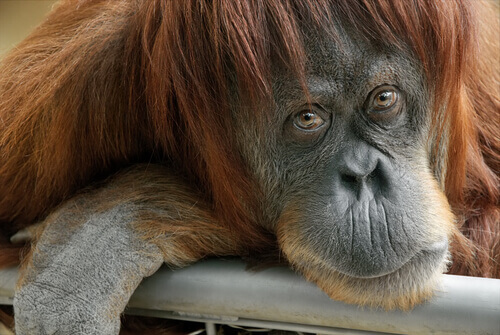Do Animals Have Emotions?


Written and verified by the biologist Samuel Sanchez
Any pet owner would happily declare that their animals have emotions. Every animal (birds and mammals, at least) has a different personality and this is endorsed by science. However, things get a little more complicated when it comes to emotions and feelings in nature. This is because these attributes are difficult to quantify though.
No matter how philosophical the subject may be, researchers all over the world seldom get tired of answering this question. Are you ready to learn more about feelings in the animal world? Continue reading then.
Animals – feelings and emotions aren’t the same
Feelings are both a state of mind and the conceptualized emotion that determines it. Emotions are faster, as they’re psychophysiological reactions resulting from certain stimuli when perceiving a relevant object, person, place, or event. There are more differences between both terms though:
- Emotions are quick and transitory, while feelings linger over time
- Emotions are unconscious alterations since they don’t require the previous reasoning
- One can’t conceive a feeling without a previous emotion; for example, the same emotion can lead to many different feelings
Emotions seem to be an evolutionary mechanism, in part. This is because they can become rather useful in nature’s challenges. Some of them are basic, such as fear, anger, disgust, joy, sadness, and surprise, and have a clear innate component. The rest of the emotions are complex and can have more difficult purposes to decipher.

Do animals have feelings?
Once both terms have been elucidated, it’s more appropriate to associate the animals’ states of mind with emotions, not with feelings. Even so, these are difficult to identify because their expression is apparent in the animal’s behavior and not the emotion per se.
Even so, ethological studies have tried to demonstrate the presence of both simple and complex emotions in various animals:
- Researchers monitored possible cognitive-emotional manifestations in a sample of bees when these were subjected to stress
- Some of them became agitated inside their honeycomb before the researchers introduced a sequence of smells, both new and known
- Other bees remained calm in their quarters and the researchers later exposed them to the same odors
- Finally, they observed that those bees subjected to anxiety were much less adventurous when approaching unfamiliar smells
Fear, a primal emotion, can explain this fact. These animals may have a more emotional reserve in the face of new stimuli after a traumatic experience.
The emotions of mammals
Things becomes even more complicated when we delve into the brain complexity of the subjects in question. This is because diverse complex emotions register in mammals. For example:
- Several studies revealed that primates experience empathy. For example, macaques refused to obtain food by pulling a lever if it meant an electric shock to someone else, in several lab studies.
- Many theories propose that dogs perceive negative emotions just like humans do. We know that these animals experience psychological pathologies such as chronic depression and neurosis.
- Elephants have cognitive memory and show empathy for the suffering of their fellow elephants.
As you can see, the development of ethology in recent decades seems to indicate that humans aren’t the only ones capable of feeling in the animal world. In addition to basic emotions, these facts show that concepts such as empathy or complex emotional disorders are also present in animals.

An unresolved debate – do animals have emotions?
Despite the scientific evidence, there are detractors who disagree with the concept of emotions in the animal world. They argue that studies and interpretations are always approached from a biased anthropomorphic perspective.
Much of this debate lies in the very differentiation of complex concepts such as emotions and feelings. Can animals feel? Well, why shouldn’t they? After all, emotional biases have been observed in them. Also, are a mammal’s cognitive capacities comparable to those of humans? So many questions with many different answers that vary according to the level of understanding each one of us attributes to non-human animals.
All cited sources were thoroughly reviewed by our team to ensure their quality, reliability, currency, and validity. The bibliography of this article was considered reliable and of academic or scientific accuracy.
- Emotion in animals, wikipedia. Recogido a 1 de julio en https://en.wikipedia.org/wiki/Emotion_in_animals
- Paul, E. S., Harding, E. J., & Mendl, M. (2005). Measuring emotional processes in animals: the utility of a cognitive approach. Neuroscience & Biobehavioral Reviews, 29(3), 469-491.
This text is provided for informational purposes only and does not replace consultation with a professional. If in doubt, consult your specialist.